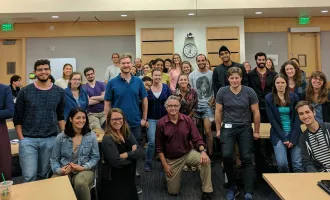
Join an RCO
UCSF Graduate Students are superheroes. They conceive of, develop, and perform ground-breaking science. But that alone is not enough. They...

Leverage Your Expertise to Ignite Change
As scientists and healthcare professionals, we are experts. Despite our training status, our unique experiences and education give us the...
Improving Mentorship Top Priority for UCSF Graduate Students
Last week, the Associated Students of the Graduate Division ( ASGD), the student government representing graduate students at UCSF, shared...
Saving Your Skin
In 2015, a seven-year old boy in Germany lost 60% of his skin due to a genetic disorder. Miraculously, after...
Retooling Cancer Model
Cancer is an ever-present scourge in modern society. More than 1.6 million Americans were diagnosed with cancer in 2016, and...
Talking science with NPR correspondent
Want to be a better science communicator? Simplify your message, and get over the impulse to go into excruciating detail...

App-Controlled Designer Cells Treat Diabetes
Electronic monitoring and storing of health data is all of the rage right now. Many of us track the number...

Launch a Career in Scientific Storytelling
As scientists, we live in the nitty-gritty details and caveats of our work. To be effective scientific communicators, we must...

TZAPping Telomeres Shorter
Our DNA fits into our cells by tightly coiling into structures called chromosomes. During cell division, the machinery that is...



